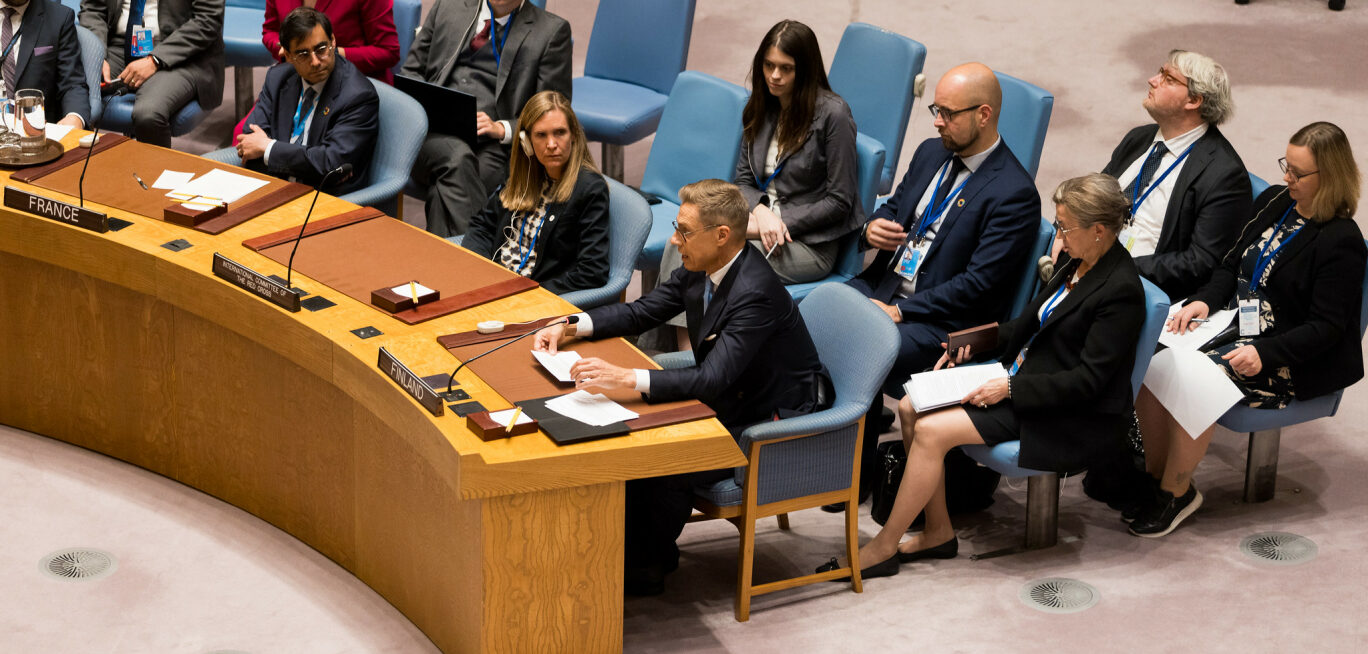Check against delivery
Maintenance of international peace and security: Leadership for Peace
Mr. President, Excellencies, Colleagues,
I speak today on behalf of the Nordic countries Denmark, Iceland, Norway, Sweden and my own country, Finland.
I will focus on three aspects of leadership – and how leadership should be used to end wars and promote peace in Ukraine, Palestine, Sudan and beyond.
First is the fundamental importance of national leadership. The implementation of Security Council resolutions hinges upon the efforts of member states. Ultimately, most decisions on war and peace are made at the local level. The UN Charter guides all of us to resolve international disputes with words instead of weapons. We can mediate, or support the mediation efforts of others.
For peace in Gaza, we must use our influence towards compliance with international law, a lasting ceasefire and the release of the remaining hostages. For peace in Ukraine, the aggressor must stop the war, and we must ensure accountability for this blatant violation of the UN Charter by a Permanent Member of this Council. For peace in Sudan, we must find a path towards restoring democratic governance, while meeting the urgent humanitarian needs and ending the atrocious violence against civilians.
In all conflicts, irrespective of where they occur, we must call out serious violations of international law and support accountability.
Second, it is this very Council that is entrusted with the primary responsibility for international peace and security. The Council is not always delivering what we expect from it. The veto is one part of this shortcoming. The Nordic countries maintain that the veto should be used with utmost restraint, with maximum transparency and in strict adherence to the UN Charter. The composition of the Security Council needs addressing. It should better reflect the global realities of the 21st century. Africa’s under-representation is particularly glaring. Other imbalances should also be rectified. A seat at this horseshoe is, however, not a privilege but a responsibility. A responsibility to overcome differences, rather than blaming others.
Third, inclusive leadership is our best chance for lasting peace. Peace cannot be forged among the likeminded or like-sized countries alone. We need dialogue and cooperation. Women must be able to meaningfully participate at all levels in peace processes. Young people can make a valuable contribution, and should be able to do so. After all, conflicts are endangering their lives as well as their future.
Finally, our ultimate aim must be not just to resolve conflicts, but to prevent them. This requires dedicated and inclusive leadership, from each and every one of us.
I thank you.

